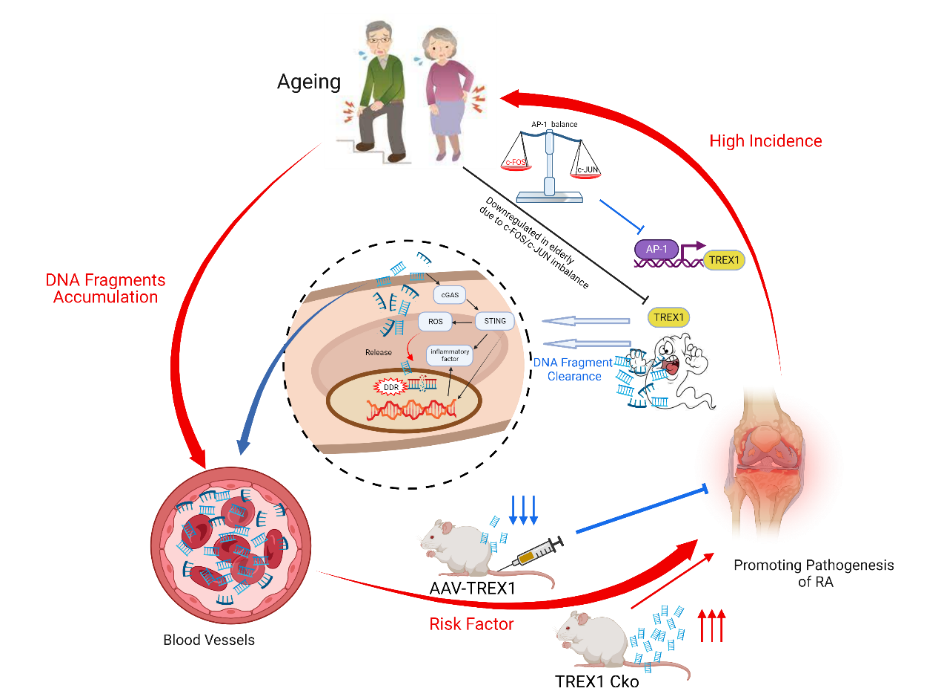rheumatoid arthritis (ra) is a persistent disease worldwide, with its incidence increasing with age. however, the role of aging as a risk factor and its mechanism influencing the disease's pathogenesis remain unclear. in recent years, studying the precise pathogenesis of ra and its treatment targets from the perspective of gene regulation has become a hot topic in international rheumatology and immunology.
the latest research study, led by assistant director of the state key laboratory of quality research in chinese medicine of m.u.s.t. professor vincent wong, found that the expression of the trex1 gene in elderly and geriatric ra patients was significantly lower than that in young or healthy elderly people. moreover, they observed elevated levels of cfdna in the patient’s serum, suggesting an association between cfdna levels, age, and the pathogenesis of ra. based on this new finding, the research team designed arthritis animal experiments to validate their observations. they established the sd rat adjuvant arthritis (aia) model to confirm the significantly lower trex1 transcript level and higher serum cfdna concentration in the aia rats compared to normal rats, which are consistent with the clinical results on ra patients. besides, the research team generated the world's first trex1 conditional knockout sd rats using crispr /cas9 technology and confirmed that dna fragments markedly induced and exacerbated arthritis in these trex1 knockout animals. notably, they had further overexpressed the trex1 gene in aia rats using adeno-associated virus and demonstrated that trex1 overexpression significantly reduced the arthritis severity compared to with non-trex1 overexpressed rats. collectively, these results indicated that the induction of high trex1 gene expression in the aia model is an effective approach to ameliorate arthritis conditions and reduce the pathological degree of arthritis. with the observed clinical and transgenic animal experimental results, the research team confirmed that the low expression of the trex1 gene and cfdna accumulation can promote the progression of ra disease in middle-aged and elderly individuals. to further explore the high prevalence of ra in the elderly, the research team found for the first time that a low level of trex1 in the aia model was associated with an aging phenotype: senescence-associated secretory phenotype (sasp). it would eventually promote the imbalance of c-jun and c-fos, and suppress the production of the heterodimeric transcription factor ap-1, which in turn downregulated trex1 expression. this insight provides new avenues for the development of new targeted drugs to prevent ra in the elderly population.

this study applied cutting-edge technologies to scientifically elucidate the problems found in clinical practice. it unraveled a new mechanism for the pathogenesis of rheumatoid arthritis and introduced a new strategy for the prevention and treatment of ra in the elderly by activating the trex1 gene or enhancing the clearance of cfdna. these research findings were published in nature communications (if: 16.6; ), with professor vincent wong (assistant director of the state key laboratory of quality research in chinese medicine, m.u.s.t.), associate professor betty law, and chair professor liang liu as the co-corresponding authors, and dr. wei-dan luo as the first author of the paper. the clinical samples for this study were provided by the affiliated hospital of southwest medical university. this work was supported by macao science and technology development fund (project no. 0003/2019/akp; 002/2023/alc).
